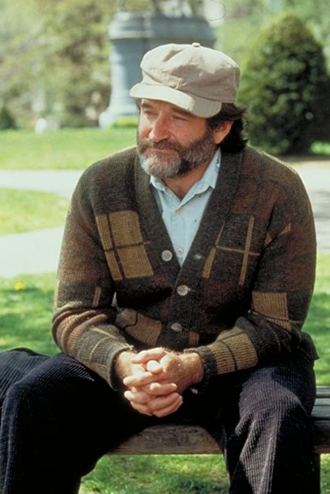Before Smosh, I was only occasionally exposed to Reddit stories. Now, thanks to the videos, I am more familiar with them.
Many of the stories are undoubtedly infuriating. But, there is one which hits different: this is the first one which I find….. triggering.
In this story, an obese man got called a pig because he finished the last remaining sandwiches at a party and the reddit comment section thought he was the asshole. If you pay attention to the details, calling him the asshole is a bit too much.
First thing first, it was at a party and the foods were meant to be eaten. Unless you are one of those weirdos who think foods should be purely decorative.
Second, he said he waited for an hour before he ate the last remaining sandwiches, ensuring no one else wanted them. Despite having large appetite, he still had some self-control and tact.
Third, he brought chicken wings and, like the feral hairless apes they were, they gobbled every single one, leaving none for him. Not to mention they just watched, waited for him finishing the food before unleashing hell upon him.
While I may not be obese, I am still an overweight person with large appetite and I find the story too painfully relatable.
I am fatter than most people around me and yet, I have better self-control than many of them. My mom’s the worst.
Every time we eat at a restaurant, she almost always over-order the foods. When she doesn’t take heed of my complain, we – especially me – often end up feeling extremely nauseous at the end because I hate wasting foods and she has what we Indonesians call the “hungry eyes”: a condition in which we want certain things simply because we love their sights and not because we need them…. and that includes foods; yes, she rarely finish the food she over-orders.
Not only she lets her eyes conquering her guts, she also lets her tongue to do the same. It doesn’t matter how heavy and greasy a meal is, it would not satisfy her if it tastes like snacks. So, after a nauseating dinner of crispy fried wonton with cheesey potato filling (a recipe of her friend) which she insisted to be served with rice, she still wanted a “proper meal”; I had to buy fried chickens and fries from the McDonald’s for her.
And I haven’t talked about my high school friends. We were celebrating something at a restaurant (I forgot what) and we opted for buffet dinner. When it was time to eat, many of them acted like they hadn’t eat in days; they immediately took two plates and each was filled with a mountainous pile. And yes, they didn’t finish their foods.
While I admittedly eat a lot of foods and I am definitely guilty of regular emotional eating, I always finish my foods; food wise, I NEVER bite off more than I can chew. I never over-buy foods in supermarkets, I never over-order in restaurants and I certainly never pile foods in buffets. I certainly know my stomach’s limit.
Of course, unsurprisingly my mom thinks I am the one who lacks restraint. She also acts surprises every time I say I am full, as if greasy foods and snacks should never fill me up. Not to mention the fat-shaming I endured growing up, along with the other emotional abuses she committed.
And those high school friends? They had the gall to mock me for taking a second helping. While they were not abusive like she is, their hypocrisy is just as frustrating.
Nowadays, I am much braver in calling her out (which really violates her conservative Indonesian boomer sensibility). But, that trauma still lingers to this day, as shown by how triggered I am by the reddit story.
Obviously, the redditor and I do need to fix our eating habits. I acknowledge that people like us are endangering our own health and personally, I despise how the body positivity movement is hijacked by people who whitewash fatness; you can humanise fat people without pretending they are healthy.
But, at the same time, we must be honest with ourselves: non-fat people can also have bad eating habits and, if you have basic knowledge in health, there are other unhealthy habits that won’t make you fat. Fat-shamers never care about other people’s well-beings, they are just abusive cunts who hide behind so-called “good intentions” which gullible fucks fall for.
Despite his own shortcoming, he is obviously not the asshole. But, unfortunately, many on reddit think he is.
I have different assumptions of why that is.
Maybe they are just unfortunately myopic and thoughtlessly negligent with the details luridly displayed in front of them. As regrettable as it is, I can acknowledge they mean no harm with their opinions and their condition can be cured by teaching them basic reading comprehensions and empathy.
Maybe they are those self-hating fat and former fat people. They have yet to accept that they deserve criticisms and the opportunity of self-improvements without the abuses.
Or maybe they are those abusers. They read how the narrator is obese and they immediately go predatory-mode, seeing him as someone to prey upon for their own sadistic amusement.
.
.
As I said before, I found this story from one of Smosh’s reddit videos, hosted by Shayne Topp. Since I have been watching Smosh videos regularly, I – along with many – have been charmed by him.
Yes, he is physically attractive and funny. But, when he is not “performing”, he is also very chill and doesn’t take himself too seriously; judging from what his colleagues say about him (assuming they are telling the truth), he seems to be very likeable off-camera, so likeable they want to eat their lunches with him.
The reddit videos make him even more lovable for me. Even though I may not always agree with his assessments, he is the perfect host for such show: he is able to read between the lines, he is able to be nuanced without falling for false neutrality and he is not dismissive of other people’s life experiences.
With that reddit story, while he understands why people might get upset with the redditor’s behaviours, he also thinks the backlash is disproportionately harsh. He believes we can criticise the redditor without spewing venom.
And my crush for him gets him even stronger.
Yes, I know I have parasocial relationship with him. He doesn’t know I exist and if we ever meet, there is still very low chance we will ever be friends.
And yes, I also realise those traits of his may just be parts of his manufactured public persona. I shouldn’t be surprised or upset if they are eventually exposed as an act.
I have had parasocial relationships before. But, this is the first time I experience a very strong one in a long time. While I am more mentally impervious than most people I know, it still feels empowering when you grew up feeling lonely with your life experiences and a public figure validates them.
.
.
.
.
.
Donate to this deadbeat, preachy blogger on Patreon.










